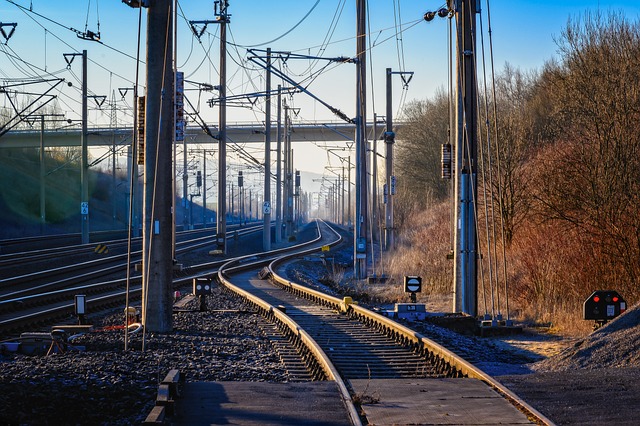
Three Conrail rail yards have been found to be contaminated with Trichloroethylene (TCE), a dangerous chemical that can cause cancer. The Elkhart rail yard in Indiana has been declared a superfund site due to TCE contamination and the Hollidaysburg and Juniata rail yards in Pennsylvania have also been found to be heavily contaminated with TCE. This dangerous chemical was used as a solvent and degreaser in railroad repair shops and many shop workers were regularly exposed to it while performing their duties. Many have developed cancer as a result. Sites like Elkhart, Juniata, and Hollidaysburg became contaminated when toxic chemicals like TCE were improperly disposed of by railroad companies, often by being buried in 50-gallon drums.
Trichloroethylene (TCE) is a dangerous chemical that can cause cancer
According to the National Cancer Institute, TCE is a colorless liquid organic chemical. It is manufactured via chemical synthesis. It’s primarily used to produce refrigerants and other hydrofluorocarbon compounds, as well as degreasing solvents for metal equipment. TCE can cause a variety of cancers, including liver cancer, kidney cancer, and Non-Hodgkin’s lymphoma. It is important to be aware of the dangers of TCE exposure and take precautions to avoid it if you live near a contaminated site.
The Elkhart rail yard is now a superfund site due to TCE contamination
The Conrail Elkhart Rail Yard superfund site is located in Elkhart, Indiana. The site includes a former rail yard and an abandoned coal-fired power plant. It is bordered by the St. Joseph River to the north and west, and by residential neighborhoods to the south and east. The Elkhart Rail Yard was used for the storage and repair of rail cars from 1887 to 2001. The power plant operated from 1903 to 1995. EPA placed the site on the National Priorities List in September 2002. Site investigations have shown that soil, sediment, air, and groundwater are contaminated with hazardous chemicals, including TCE. These chemicals can cause a variety of health problems, including cancer, liver damage, kidney damage, and respiratory problems. The EPA is working with the site’s owners and operators to clean up the contamination.
The Hollidaysburg and Juniata rail yards were also found to be contaminated with TCE
Elkhart was not the first time Conrail was found to have contaminated its rail yards with toxic waste. In 1997, the EPA decided to install new wells around the rail yard of Hollidaysburg, PA. Upon doing so, it uncovered hundreds of buried barrels of toxic waste that were allegedly placed there by Conrail. The toxic waste contained the cancer-causing substance Trichloroethylene. After discovering the barrels, the EPA immediately cordoned off the area and began an investigation. Criminal charges were also assessed against Conrail by the Pennsylvania Office of the Attorney General relating to the unlawful disposal of chemicals at the Hollidaysburg Reclamation Plant and Juniata Locomotive Shop.
Railroad workers exposed to TCE
It is evident that railroad repair shops are a major source of potential toxic chemical exposure for railroad workers. TCE was often used as a powerful solvent in these shops for many years which workers were regularly exposed to while performing their duties. These exposures have contributed to many workers being diagnosed with cancer.
Conclusion
Evidence shows that the railroad industry has known about the dangers of TCE for many years, yet continued to use it in repair shops, putting their workers at risk. It is important that these workers and their families are aware of their rights under the Federal Employers Liability Act (FELA) should they suffer from health conditions associated with TCE exposure.
If you or a loved one has been diagnosed with cancer and you believe you were exposed to toxic solvents such as TCE on the railroad, call us today for a free consultation. We are here to help.





